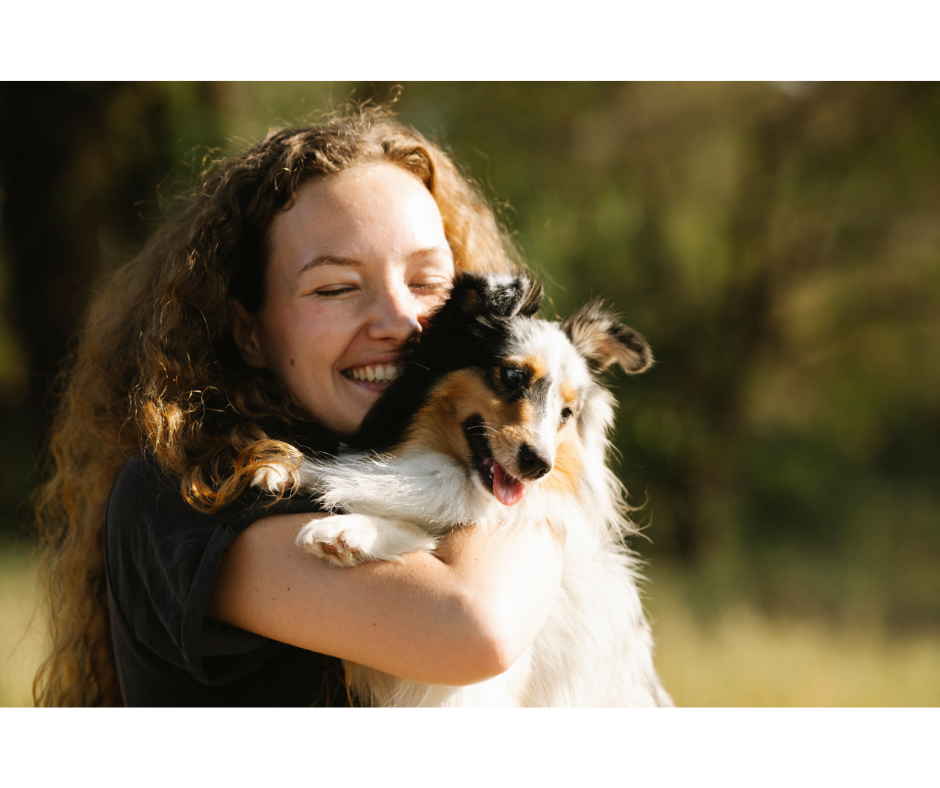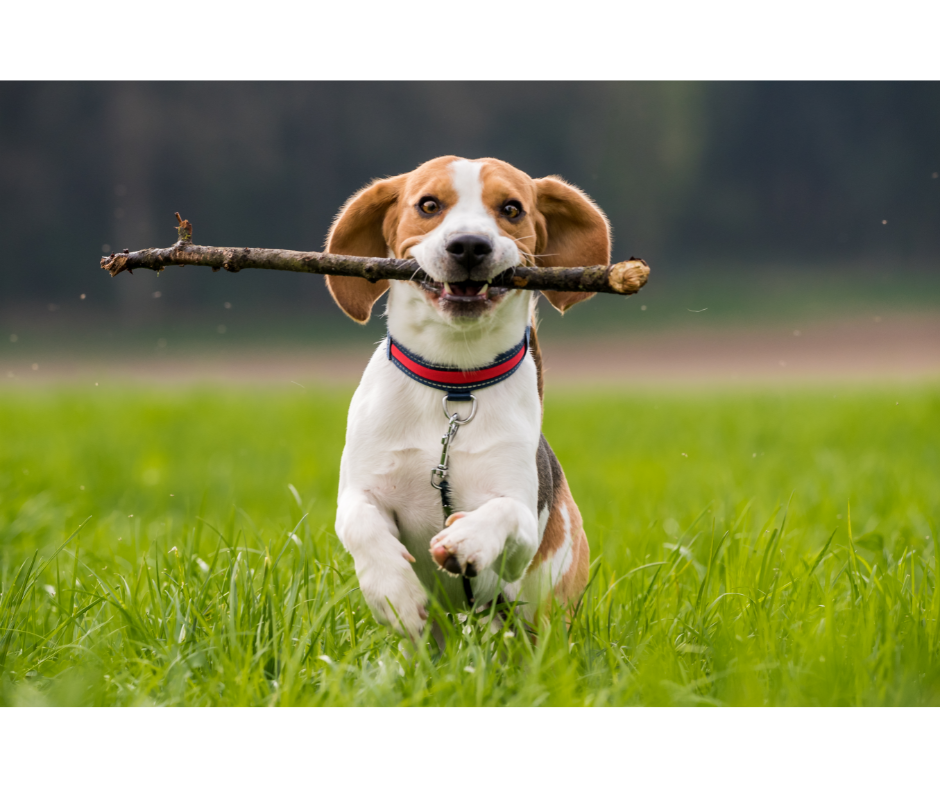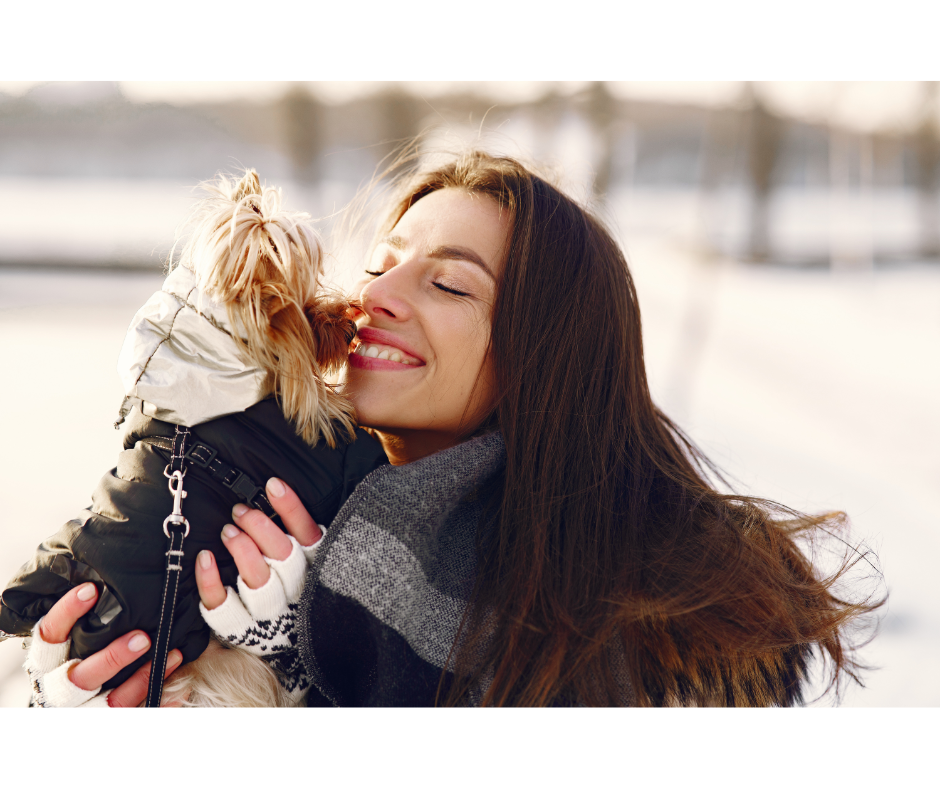So you’ve got a furry friend at home and you want to make sure they’re happy and healthy. But what exactly is dog wellness? Well, it’s all about taking care of your pup’s physical and mental well-being. From regular vet visits to a nutritious diet and plenty of exercise, dog wellness encompasses everything that contributes to your dog’s overall health. In this article, we’ll explore the different aspects of dog wellness and why it’s so important for your four-legged companion. Dog wellness refers to the overall health and well-being of a dog, encompassing various aspects such as physical, emotional, behavioral, preventive healthcare, dental care, grooming and hygiene, environmental wellness, senior dog wellness, and holistic approaches. Taking care of your dog’s well-being is essential to ensure that they lead a happy and fulfilling life. In this article, we will delve into each area of dog wellness and provide you with comprehensive information on how to maintain and improve your dog’s well-being.
Defining Dog Wellness
Dog wellness can be defined as the state of optimal physical, mental, and emotional health of a dog. It involves taking a holistic approach to address the various needs of a dog, including their nutrition, exercise, socialization, mental stimulation, and preventive healthcare. When a dog is in a state of wellness, they are likely to have a longer lifespan, be more resistant to diseases, exhibit a balanced temperament, and have a better quality of life.
Why Dog Wellness Matters
Dog wellness is incredibly important because it directly impacts the overall quality of life of your furry friend. When a dog is well-cared for and their needs are met, they are more likely to be happy, energetic, and content. Proper dog wellness also helps in preventing and managing various health issues, ensuring that your dog stays healthy and active for years to come. Investing time and effort into maintaining your dog’s well-being can enhance the bond between you and your canine companion and provide you with the joy of having a healthy and thriving pet.

Physical Wellness
Proper Nutrition
Providing your dog with a balanced and nutritious diet is crucial for their physical wellness. A well-rounded diet should consist of high-quality proteins, carbohydrates, fats, vitamins, and minerals. Consult with your veterinarian to determine the appropriate diet for your dog based on their age, breed, size, and any specific dietary requirements they may have. Avoid feeding your dog excessive treats or table scraps, as this can lead to obesity and other health issues.
Exercise and Fitness
Just like humans, dogs require regular exercise to maintain their physical wellness. Engaging in physical activities such as daily walks, playing fetch, or participating in agility training can help keep your dog’s muscles toned, maintain a healthy weight, and prevent boredom and destructive behaviors. The exercise routine should be tailored to your dog’s age, breed, and overall health. Always consult your veterinarian before starting any new exercise program for your dog.
Weight Management
Obesity has become a growing concern among dogs, leading to various health issues such as joint problems, heart disease, and diabetes. Monitoring your dog’s weight and maintaining a healthy body composition is vital for their physical well-being. Provide them with portion-controlled meals, avoid free-feeding, and limit the number of treats they consume. Regular exercise, as mentioned earlier, also plays a crucial role in weight management. Consult with your veterinarian if you notice any sudden or significant changes in your dog’s weight to rule out any underlying health conditions.
Emotional Wellness
Mental Stimulation
Providing mental stimulation is essential for your dog’s emotional well-being. Dogs are intelligent animals that require mental challenges to prevent boredom and keep their minds sharp. Engage your dog in interactive toys, puzzle games, and training sessions to stimulate their cognitive abilities. Teaching them new commands or tricks can not only provide mental stimulation but also strengthen the bond between you and your dog.
Socialization
Socialization plays a vital role in the emotional wellness of your dog. Introduce your dog to new experiences, people, and animals in a controlled and positive manner. This helps them develop confidence, learn appropriate behavior, and reduce the likelihood of aggression or fear in social situations. Enroll your dog in puppy classes or obedience training programs to ensure they have positive interactions with other dogs and humans.
Cognitive Abilities
Just like humans, dogs can experience cognitive decline as they age. Mental exercises and activities can help slow down cognitive decline and keep your dog’s brain sharp. Incorporate activities such as hiding treats, playing scent games, or teaching them new tricks. Additionally, providing a stimulating environment with a variety of toys and interactive games can help keep their minds active and engaged.
Behavioral Wellness
Training and Obedience
Proper training and obedience are essential for a dog’s behavioral wellness. Consistency, positive reinforcement, and clear communication are key elements of effective training. Teach your dog basic commands such as sit, stay, and come, and work on improving their behavior through reward-based training methods. Well-trained dogs are not only easier to manage but also have better mental well-being as they understand their role and boundaries within the household.
Stress and Anxiety Management
Stress and anxiety can negatively impact a dog’s well-being, leading to behavioral issues and health problems. Recognize the signs of stress in your dog, such as excessive barking, destructive behavior, or withdrawal, and take steps to manage it. Provide a safe and secure environment, establish a routine, and engage in calming activities such as massage or aromatherapy. Consult with a professional trainer or veterinarian if your dog’s stress levels are persistent or severe.
Behavior Modification
If your dog exhibits problematic behaviors such as aggression, excessive barking, or separation anxiety, behavior modification techniques may be necessary. Working with a professional dog trainer or behaviorist can help identify the underlying cause of the behavior and develop a customized plan to address it. Behavior modification techniques often involve positive reinforcement, desensitization, and counter-conditioning to modify unwanted behaviors and promote a more balanced and well-behaved dog.
Preventive Healthcare
Regular Vet Check-ups
Regular veterinary check-ups are essential for maintaining your dog’s overall health and well-being. Schedule annual wellness exams for your dog, which typically include a physical examination, vaccinations, and preventive screenings for common diseases. Regular check-ups allow your veterinarian to detect any potential health issues early on and provide appropriate treatment or preventive measures.
Vaccinations
Vaccinations are an important aspect of preventive healthcare for dogs. They protect against various contagious and potentially life-threatening diseases such as distemper, parvovirus, and rabies. Consult with your veterinarian to determine the appropriate vaccination schedule for your dog based on their age, lifestyle, and risk factors.
Parasite Control
Parasite control is crucial for your dog’s well-being as parasites can cause a range of health problems. Regularly deworm your dog to prevent intestinal parasites, and use appropriate flea and tick control products to protect against external parasites. Your veterinarian can recommend the right preventive measures for your dog based on their specific needs.

Dental Care
Brushing Teeth
Proper dental care is often overlooked but is crucial for a dog’s overall health. Regularly brushing your dog’s teeth helps prevent the buildup of plaque and tartar, which can lead to gum disease and tooth loss. Use a dog-specific toothbrush and toothpaste to gently brush their teeth at least a few times a week. Start the brushing routine gradually and reward your dog for their cooperation.
Professional Dental Cleaning
In addition to regular brushing, professional dental cleanings by a veterinarian are necessary to remove stubborn tartar and perform a thorough examination of your dog’s oral health. Professional cleanings are usually done under general anesthesia to ensure a safe and effective procedure. Consult with your veterinarian to determine how often your dog needs professional dental cleanings based on their individual needs.
Dental Chews and Toys
Dental chews and toys can be helpful in promoting good oral hygiene for your dog. Chewing on appropriate toys and treats can help reduce plaque buildup and massage the gums. Choose dental chews that are specifically designed to promote dental health and avoid giving your dog hard objects that can potentially damage their teeth.
Grooming and Hygiene
Bathing and Cleaning
Regular bathing and cleaning are necessary to keep your dog’s coat and skin healthy. The frequency of bathing depends on your dog’s breed, coat type, and lifestyle. Use a gentle dog-specific shampoo and conditioner to prevent skin irritation and moisturize the coat. Remember to thoroughly dry your dog after bathing to prevent dampness and potential skin infections.
Brushing and Hair Care
Brushing your dog’s coat helps remove loose hair, prevents matting, and promotes a healthy and shiny coat. The brushing frequency depends on your dog’s coat type – long-haired breeds may require daily brushing, while short-haired breeds may only need brushing once or twice a week. Use a grooming brush or comb suitable for your dog’s coat to effectively remove tangles and keep the coat in good condition.
Paw and Nail Care
Regular paw and nail care are essential for your dog’s comfort and overall well-being. Trim your dog’s nails regularly to prevent overgrowth, which can lead to discomfort and difficulty walking. Use proper nail clippers designed for dogs and be careful not to cut into the quick, which can cause bleeding. Additionally, check your dog’s paws regularly for any signs of injury, cuts, or infections.

Environmental Wellness
Safe and Comfortable Living Environment
Providing your dog with a safe and comfortable living environment is crucial for their overall well-being. Ensure that your home is free from hazards such as toxic plants, chemicals, small objects that can be swallowed, or sharp edges that can cause injuries. Create a designated space with comfortable bedding where your dog can rest and feel secure.
Toxic-Free Surroundings
Dogs are curious creatures and can easily get into substances that may be toxic to them. Keep all detergents, cleaning products, medications, and other potentially harmful substances out of your dog’s reach. Be cautious of using certain plants or landscaping materials that may be toxic if ingested by your dog. If you suspect your dog has ingested something toxic, contact your veterinarian immediately.
Environmental Enrichment
Enriching your dog’s environment can help prevent boredom and provide mental stimulation. Provide a variety of toys, rotate them regularly to keep the novelty, and engage your dog in interactive play. Consider using treat-dispensing toys or puzzle toys that require problem-solving skills. Additionally, set aside dedicated playtime with your dog to strengthen the bond and keep them mentally and physically active.
Senior Dog Wellness
Health Challenges in Senior Dogs
As dogs age, they become more susceptible to certain health challenges such as arthritis, dental issues, cognitive decline, and organ dysfunction. Regular veterinary check-ups become even more important to monitor their health and detect any age-related conditions early on. Always be vigilant for any signs of discomfort or changes in behavior, and consult your veterinarian if you notice anything out of the ordinary.
Special Care and Attention
Senior dogs often require special care and attention to ensure their well-being. Adjust their diet to meet their changing nutritional needs and include supplements such as joint support or omega-3 fatty acids to promote joint health and cognitive function. Provide comfortable bedding and consider adding ramps or stairs to help them navigate elevated surfaces. Adapt their exercise routine to be low-impact and focus on activities that maintain muscle strength and mobility.
Mobility and Joint Health
Maintaining joint health and mobility is crucial for senior dogs. Regular exercise, such as short walks or gentle swimming, can help keep their joints supple and maintain muscle mass. Additionally, consider incorporating joint supplements or medications as recommended by your veterinarian to manage conditions such as arthritis. Provide soft and supportive bedding to alleviate pressure on their joints and make daily activities more comfortable.
Holistic Approaches to Dog Wellness
Natural Remedies
Some dog owners prefer using natural remedies to support their dog’s overall wellness. Natural remedies can include herbal supplements, essential oils, or homeopathic remedies. However, it is essential to consult with a holistic veterinarian or a qualified professional to ensure the safety and effectiveness of these remedies for your dog. Not all natural remedies may be suitable for every dog, and some may interact with certain medications.
Alternative Therapies
Alternative therapies such as acupuncture, chiropractic care, or massage can be beneficial in promoting overall wellness for dogs. These therapies aim to balance the body’s energy, relieve pain, and improve the dog’s overall well-being. Ensure that any alternative therapy is performed by a licensed professional who specializes in veterinary care to maximize the benefits and minimize risks.
Holistic Diets and Supplements
Holistic diets focus on providing complete and balanced nutrition while using high-quality ingredients that are minimally processed. These diets often avoid common allergens and fillers, providing optimal nutrition for dogs. Additionally, various supplements are available that aim to support specific aspects of a dog’s well-being, such as joint health, skin and coat health, or cognitive function. Consult with a holistic veterinarian to determine if a holistic diet or specific supplements may be beneficial for your dog’s individual needs.
In conclusion, dog wellness encompasses various aspects of a dog’s life, from physical and emotional well-being to preventive healthcare, dental care, grooming, environmental wellness, senior dog wellness, and holistic approaches. Taking a comprehensive approach to your dog’s wellness ensures that they lead a happy, healthy, and fulfilling life. By providing proper nutrition, exercise, mental stimulation, veterinary care, grooming, and a safe environment, you can enhance your dog’s overall well-being and strengthen the bond you share with them. Remember to consult with your veterinarian for personalized advice and recommendations to address your dog’s specific wellness needs.

